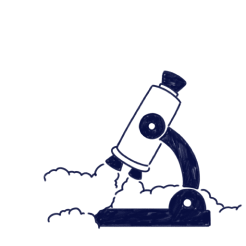
No doubt the world has changed in recent years. Yet innovation in the medical field is stronger than ever.
Today, researchers are taking a cutting-edge approach to creating—or improving—medical devices. This article will highlight some of the top medical device companies we are seeing. The founders of these MedTech companies are working tirelessly to leverage technology in order to improve patient care.
What goes into medical device innovation?
The most effective MedTech companies share a few common factors. According to a recent McKinsey report, these companies are rooted in the goal of consistently delivering a better patient, caregiver, or clinician experience.
The report also cites that the most promising medical device companies “reimagine processes to dramatically reduce costs and accelerate decision-making.” This means that the startups currently making waves in our industry offer innovations that are safer, more convenient, less expensive, or simply better than traditional or alternative solutions.
In order to deliver a premium device, these companies must provide proof-of-concept. This means that proper funding is equally essential—and so is safety. Food & Drug Administration (FDA) approval or a CE mark from the European Commission can help.
Regulatory approval is not only useful, but necessary. This is where medical device classification may come in. The FDA categorizes medical devices into one of three classes based on the risks and regulatory measures needed to reasonably prove safety and effectiveness. Class I devices generally provide the lowest risk to patients, while Class III devices present a higher risk.
Top 10 medical device companies of 2022
The following medical device businesses are working hard to improve clinical outcomes. These are just some of the breakthrough players this year.
1. Abilitech Medical
Based in Minnesota, Abilitech Medical is helping patients with upper-limb neuromuscular conditions reclaim their independence. The company has developed several functional assistance devices that support patients’ daily activities (from changing their clothes to brushing their teeth).
The overarching goal is for people to achieve arm independence using clinically-backed technology from the comfort of home. Physical, social, and financial autonomy are the end result.
2. EchoNous
The Washington State-based EchoNous made headlines in 2021 for its 128-channel linear probe called Lexsa. Lexsa delivers new capabilities for the startup’s Kosmos artificial intelligence (AI)-powered point-of-care ultrasound tool.
That’s right: the company offers a portable machine with the same imaging capacity as a conventional cart-mounted ultrasound. The innovative device allows clinicians to complete heart, abdominal, and lung assessments in minutes.
3. Ambu
Single-use endoscopy devices? Look no further than Ambu for this revolutionary tool. Reusing endoscopes has long been controversial (due to the risk of spreading infection from patient to patient)—but one Denmark-based company has set out to change this with a single-use bronchoscope.
Ambu has made real progress in just a short time, with two FDA approvals and a Health Canada Greenlight in 2021. With great headway in the arena of single-lung ventilation and bronchoalveolar lavage procedures, Ambu has its sights set on ENT, urology, and gastroenterology moving forward.
Another appealing factor is Ambu’s desire to reduce its carbon emissions. The company has joined forces with Sharpes Compliance to keep its products out of landfills.
4. Parasym Health
Visit Parasym’s website, and the first words you’ll see are “Neuromodulation for better health.” This is no exaggeration, as the London-based medical device company's neurostimulation products are clinically proven to enhance the quality of life of patients facing inflammatory conditions and chronic pain.
The process is seamless and involves an ear clip electrode that uses electrical current micro-pulses to target the vagus nerve (which protects the brain and major organs). The Parasym Device is currently CE-marked, with the FDA designating it a Non-Significant Risk (NSR). Though it is only available in U.S. research settings at this time, this will likely change in the near future.
5. Bloomlife
For many patients, remote monitoring from home is the way of the future. Enter Bloomlife, which delivers personalized prenatal care for expectant mothers. The San Francisco-based company has developed clinically-certified wearables for pregnant women, with the goal of improving birth outcomes.
The medical device addresses common challenges in prenatal care through the use of data. By providing personalized feedback to mothers, the wearable helps healthcare providers predict pregnancy complications. The idea is to mitigate risks and increase access to care with unprecedented convenience.
6. Vivos Therapeutics
Introducing a collaborative treatment for obstructive sleep apnea—without the need for a CPAP machine or surgical implants. Vivos Therapeutics leverages what it calls the “Vivos Method” to deliver a noninvasive, cost-efficient oral appliance technology developed by dentists and medical professionals.
This medical device company is unique in that it takes a multidisciplinary approach to addressing mild-to-moderate sleep disorders and dentofacial abnormalities. The result of close collaboration between dentists and physicians, the startup launched its diagnostic VivoScore Technology in 2021—a sensor-ring recorder that assesses sleep quality.
7. Biotricity
While diabetics have long had glucometers, cardiac patients didn’t have a device to monitor their conditions—until Biotricity entered the market. The Silicon Valley-based company helps cardiologists make better diagnoses with a clinically-backed cardiac monitoring toolkit.
The startup’s technologies are impressive. The Bioflux is an electrocardiogram that continuously collects cardiac data, with a call center monitoring abnormalities. The Bioheart, meanwhile, is a direct-to-consumer wearable EKG that pairs with a smartphone for seamless user monitoring. And finally, the Biokit features several connected devices that give physicians access to even more patient data.
8. Xandar Kardian
Xandar Kardian offers a great solution for checking vitals while patients are sleeping. The Toronto-based company lets clinicians monitor patient vitals without the need for a wearable. Its XK300 Autonomous Health Monitoring solution received FDA clearance in April and can assess heart and respiratory rates against doctor-imposed thresholds.
The result is promising: patients can sleep better, without interruption, and clinicians can work more efficiently.
9. Garwood Medical Devices
This New York-based medical device company is on a mission to improve clinical outcomes for infections and wound healing. Garwood Medical’s products include the minimally-invasive BioPrax, a device that prevents infections on prosthetic knee implants—leverage electrodes to deter microbe growth.
The device was recently awarded Breakthrough Device designation by the FDA. Better outcomes and money saved on treating infections are clearly the way of the future.
10. CleanSpace Technology
The CleanSpace HALO is marketed as the “gold standard in Personal Respiratory Protection”—and with good reason. The medical device is integral to protecting healthcare workers from COVID-19. Designed to be worn around the neck, the CleanSpace HALO offers 40 times the filtration of an N95 mask.
It’s also reusable, rechargeable, and key to reducing the waste of single-use masks. Headquartered in Australia, the medical device company behind the innovation also features an app that makes it simple for healthcare workers to check the status of any given respirator. Though we’re through the worst of the pandemic, we’re confident this device will be around for a while.
Elevate your medical device company with Scilife
Medical device companies are making great strides this year. From rethinking how to treat sleep apnea to transforming the traditional stethoscope using AI, there are powerful innovations on the market today.
We find this inspiring—for both emerging medical device companies and longstanding brands. And if you’re looking to enhance your own quality processes, you might consider working with a trusted software that matches your innovation speed.
Discover how Scilife for Medical Devices can help become ISO 13485 certified!


